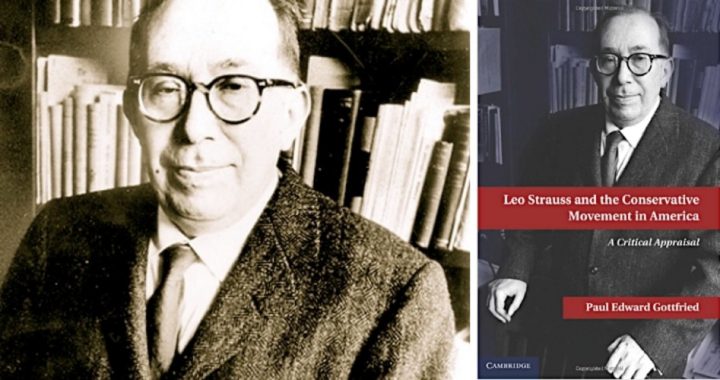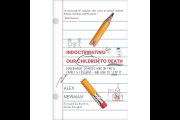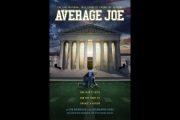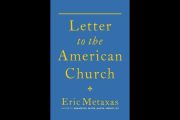
From talk radio to Fox News, Rush Limbaugh to Sean Hannity, National Review to The Weekly Standard, what is popularly understood as “the conservative movement” has no short supply of voices. But what few people — and even fewer people among self-avowed “conservatives” — ever bother to ask is whether the popular understanding of conservatism is an accurate understanding. That is to say, are Rush Limbaugh, Sean Hannity, and their colleagues on the airwaves and in mainstream publications really conservative? One person who has spent decades asking — and answering — this question is Paul Gottfried. He raises it once more in his most recent book, Leo Strauss and the Conservative Movement in America.
And it is within this work that the author resolves this key question with a definitiveness that is obvious for all with eyes to see: the contemporary expression of “the conservative movement,” Gottfried declares, has little to nothing in common with “the Old Right” of yesteryear.
In other words, most of today’s self-described “conservatives” are nothing of the sort. They are, rather, neoconservatives. As such, they compose a movement, yes, but a movement that is scarcely continuous with any recognizably right-wing tradition. On the most legible reading of it, as Gottfried amply demonstrates, the contemporary “conservative movement” is nothing more or less than another variation of leftism. Indeed, the author cleverly, and provocatively, characterizes it as “the alternative left.”
So what does any of this have to do with the twentieth century philosopher, Leo Strauss?
Readers may recall the frequency with which the name of Leo Strauss was bandied about by the adversaries of the Republican Party, particularly its leftist nemeses, during the presidency of George W. Bush. Strauss had already been dead for over 40 years by the time that Bush was first elected to the Oval Office, and yet, thanks to the diligence of the latter’s objectors on the left (and, in some instances, elsewhere), Strauss’s name had acquired ominous connotations as it was linked with the hated Bush administration.
Gottfried is quick to point out that the relationship between, on the one hand, Strauss’s ideas and, on the other, Bush and “the conservative movement,” has been as exaggerated as it is misunderstood. However, Gottfried is equally quick to underscore that for as erroneous as most accounts of this connection are, there nevertheless is a connection.
To put it simply, Strauss’s ideas in the arena of political theory, the ideas that he bequeathed to his students — what Gottfried refers to as “the Tradition” — constitute the intellectual ornamentation for neoconservative foreign policy, i.e. a policy aimed at the promotion of “liberal democratic values” the world over.
This drapery in turn consists, first and foremost, of a peculiar hermeneutic — a way of reading texts, specifically philosophical texts. It is this hermeneutic, Gottfried insists, that functions as the lynchpin in the Straussian worldview.
According to Strauss and his students, the classics of Western philosophy admit of essentially two types of readings, one that is exoteric, and one that is esoteric. The former is the text’s surface reading; it expresses what the author appears to be saying. However, although it is discernible to only the few, it is the latter, the esoteric meaning of the text, that reveals its author’s true intentions.
It is at this juncture that the lay reader may find himself lost. What, he may find himself thinking, does a disputed academic literary theory, favored by a long deceased scholar, have to do with neoconservative foreign policy? How can something so obscure have any bearing upon something as immediate and topical as politics?
The reader in this situation doesn’t have to wait long before Gottfried relieves him of his confusion: “the secret” meaning of each text discloses its author’s alleged fondness for “liberal democracy!” As Gottfried notes, “Strauss and his students seem to be reading their own liberal, secularist values into those whom they praise as ‘philosophers.’ ” The subjects of Strauss and his students, however long ago they lived, invariably “seem to replicate the cultural mindsets” of their interpreters.
That is, whether it is Plato or Locke, in the hands of Strauss and the Straussians, their thought, emancipated from the contingencies of place and time, is enlisted in the service of such purportedly timeless and universal ideals as “liberal democracy.”
And this is the main (but not the only) problem that Gottfried has with the Sraussian hermeneutic: it is essentially a device by which Straussians can engage in what Michael Oakeshott once characterized as “retrospective politics.” Gottfried writes: “It is for me inconceivable that anyone would be sufficiently attracted to Strauss’s hermeneutic, particularly as pursued by his disciples, unless that person is also drawn to certain political systems.”
Gottfried concedes that Strauss was a man of immense erudition, and he confesses as well to being especially taken by some of Strauss’s earlier work, and even “entire chapters” in what is perhaps Strauss’s most controversial political-philosophic work, Natural Right and History. In keeping with the remarkably respectful tone of his critique, Gottfried also underscores that, in his judgment, Strauss’s program, though deserving of criticism, has been exploited and corrupted by more common place minds.
Still, the fact of the matter remains that the Straussian program is deserving of criticism, for it is not, at bottom, a philosophical program at all. Rather, it is, ultimately, political in character. As Gottfried remarks, Straussians have been able to “misrepresent as philosophical inquiries what are often homilies about American liberal democracy.”
These “homilies about American liberal democracy” have dovetailed seamlessly with the purposes of neoconservatives. Yet, as Gottfried notes from the outset, Straussians benefit as much from neoconservatives as vice versa: their relationship is “symbiotic,” as he says. In fact, the protestations of Straussians to the contrary aside, “the nexus” between the two camps “is so tight that it may be impossible to dissociate” them “in any significant way.” He observes that while “neoconservatives draw their rhetoric and heroic models from Straussian discourse,” Straussians in turn “have benefited from the neoconservative ascendancy by gaining access to neoconservative-controlled government resources and foundation money and by obtaining positions as government advisors.” Gottfried adds that it is “hard to think of any critical political issue that has divided the two groups.”
Indissoluble from the categorical importance that neoconservatives and Straussians ascribe to the ideal of “liberal democracy” is their categorical repudiation of what they call “relativism” and/or “historicism.” Indeed, these are two sides of the same coin. Hence, even if the average politically engaged citizen had never before heard of Strauss, he has heard his voice whenever he has heard Bill Bennett or Sean Hannity or any other “conservative” commentator decry the evils of “relativism.”
Gottfried as easily disposes of Straussian talk of “relativism” and “historicism” as he does such talk of “liberal democracy.” First of all, there are no consistent relativists, for even the most ardent of self-declared relativists can never seem to bring their theory to bear upon their own views. Secondly, what Strauss and his disciples describe as “relativism” and “historicism” is nothing of the sort. If “relativism” is supposed to refer to the position that each perspective is as good as any and every other, or the position that there are no objectively grounded truth claims, or if it is supposed to entail the denial of universality, then those who stress the historicity and tradition-constituted character of political and cultural life — thinkers like Burke (Burke!) — are most certainly not the “relativists” that Strauss and company make them out to be.
Gottfried’s book is an academic treatise. Yet the author’s prose renders it readily accessible to the educated, but non-scholarly, lay reader who is interested in familiarizing himself with what is no doubt one of the most sober, least ideological, and, importantly, most respectful analyses of the enduring influence of the thought of Leo Strauss on neoconservative politics that has yet to be composed.
Photo: Paul Gottfried and his book



